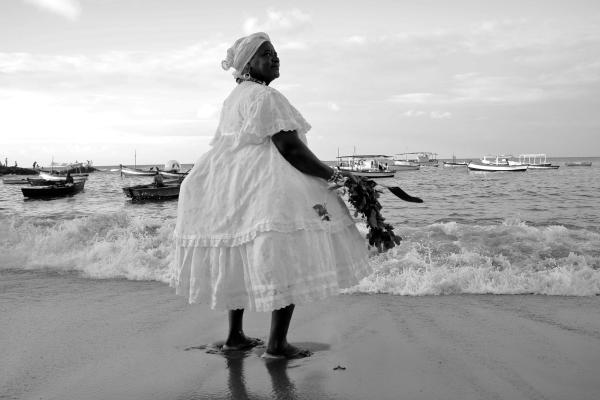
Join the Center for Latin American Studies and students in Portuguese 7440 - Black Cinema in the Americas for a lecture with Dr. Vanessa Castañeda, Assistant Professor of Afro-Latin American Studies at Davidson College.
The lecture will be presented in person and accessible remotely through Zoom.
Dr. Castañeda's research centers on the baianas de acarajé, predominantly older, working-class Black women who are street vendors in Salvador, Brazil, that sell typical regional foods with culinary origins in West Africa. They also have come to exist as central icons of the African heritage tourism and cultural figures of regional and national Brazilian identity. Using interdisciplinary methodologies, including archival research and community-based ethnographic fieldwork with the National Association of Baianas (ABAM), her work reconceptualizes the baianas as political agents of Black feminism for self and collective liberation. Dr. Castañeda shows how the women have mastered navigating their mobility in accessing multiple spaces of power, both figuratively and spatially.
